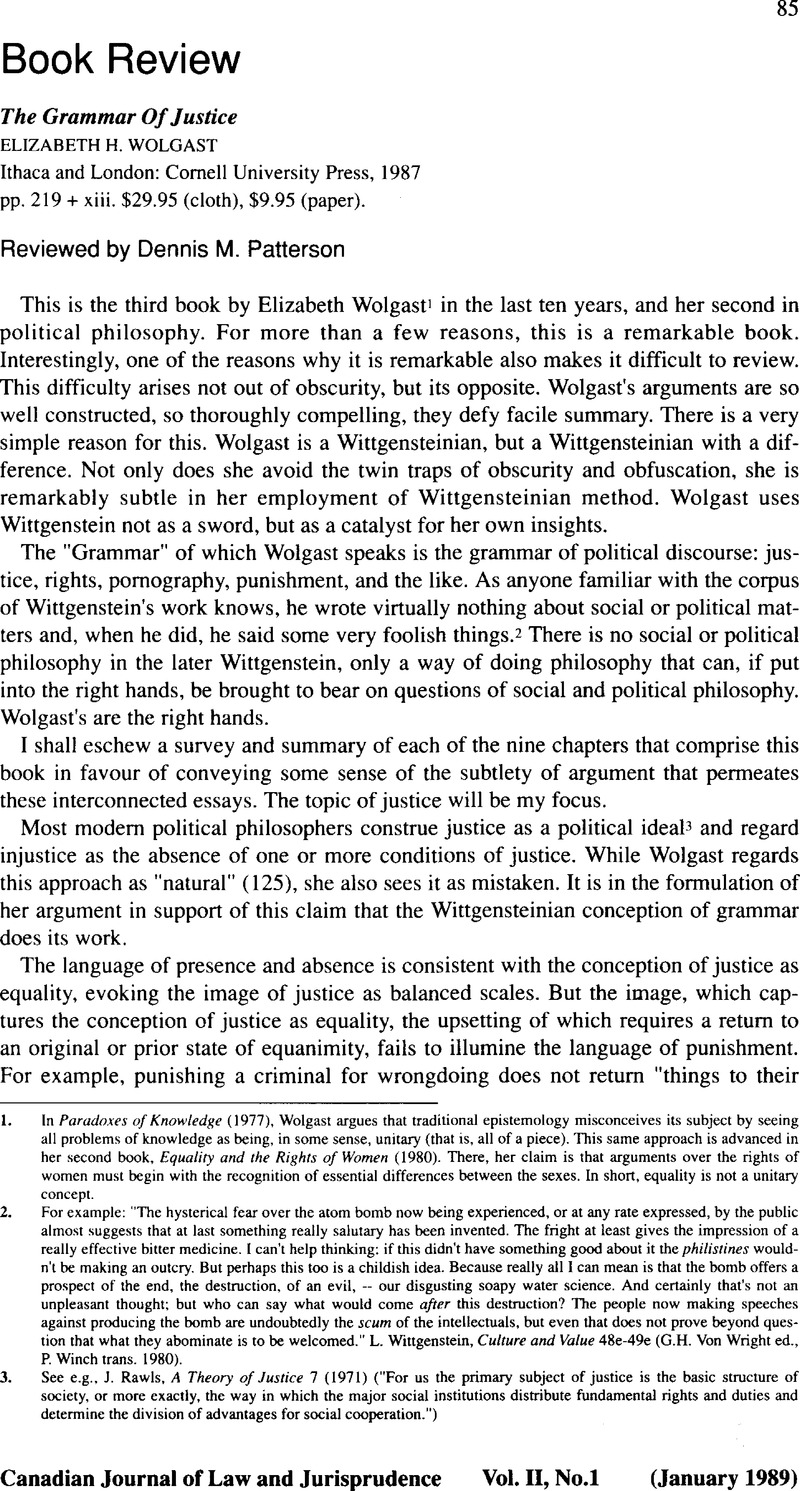No CrossRef data available.
Published online by Cambridge University Press: 09 June 2015

1. In Paradoxes of Knowledge (1977), Wolgast argues that traditional epistemology misconceives its subject by seeing all problems of knowledge as being, in some sense, unitary (that is, all of a piece). This same approach is advanced in her second book. Equality and the Rights of Women (1980). There, her claim is that arguments over the rights of women must begin with the recognition of essential differences between the sexes. In short,equality is not a unitary concept.
2. For example: “The hysterical fear over the atom bomb now being experienced, or at any rate expressed, by the public almost suggests that at last something reallysalutary has been invented. The fright at least gives the impression of a really effective bitter medicine. I can’t help thinking: if this didn’t have something good about it the philistines wouldn’t be making an outcry. But perhaps this too is a childish idea. Because really all Ican mean is that the bomb offers a prospect of the end, the destruction, of an evil, — our disgusting soapy water science. And certainly that’s not an unpleasantthought; but who can say what would come after this destruction? The people now making speeches against producing the bomb are undoubtedly the scum of the intellectuals, but even that does not prove beond question that what they abominate is to be welcomed.” L. Wittgenstein, Culture and Value 48e-49e (G.H. Von Wright ed.,P. Winch trans. 1980).
3. See e.g.. J. Rawls, A Theory of Justice 1 (1971) (“For us the primary subject of justice is the basicstructure of society, or more exactly, the way in which the major social institutions distribute fundamental rights and duties and determine the division of advantages for social cooperation.”)
4. J.R. Lucas,On Justice 4-5 (1980).